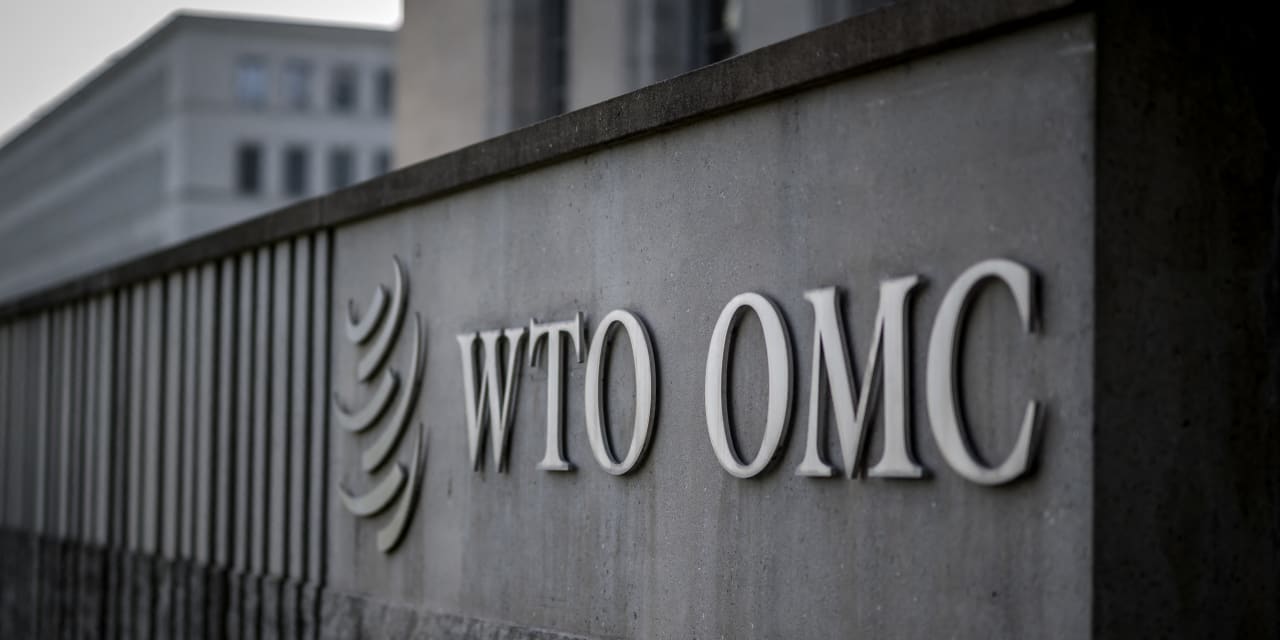About the author: Brian P. Klein is the founder of RidgePoint Global, a strategic advisory firm, and a former U.S. diplomat.
The U.S. is accelerating its pull back from global trade. That’s the concerning takeaway from the 13th biennial World Trade Organization Ministerial meeting in Abu Dhabi that ended last week.
The ministerial gathered the world’s top trade officials but produced no major breakthroughs. Meanwhile the threats to free and fair trade continue to mount and could balkanize the global trading system.
The U.S. was once the vanguard of free trade. Now its lack of progress gives more support to the chorus of isolationists at home that want to pull the U.S. back from greater international cooperation.
In Washington, the U.S. Trade Representatives’ Office has lost the center of trade policy gravity, with the traditionally more domestic-focused Department of Commerce taking lead on critical trade issues. Advocates of a free trade agenda have lost an historically influential seat at the White House table as USTR Katherine Tai continues to focus on President Biden’s labor-centric trade agenda, often at the expense of U.S. businesses.
That’s a losing proposition, made in America.
U.S. consumers will miss out on lower prices at home, workers won’t be hired to expand exports, and globally competitive U.S. companies will face barriers abroad. Recently, USTR’s about face on negotiating a digital rights agreement at the WTO has left U.S. tech giants at a strategic disadvantage in overseas markets.
Policy stagnation at a global level also has negative consequences for an American economy that relies on free trade for jobs and its continued technological advances.
There is little sign that another Biden or Trump administration will do much to rectify this slide into isolationism. To the contrary, the made-only-in-America rhetoric and the policies it engenders are likely to gather momentum.
Former President Donald Trump, if he were to win the presidency in November, is considering a 10% tariff on all imported goods. That would drive up prices across a wide range of products, including many imports the U.S. military depends on, and reignite inflation that is only now getting under control.
Such blanket tariff hikes create unnecessary barriers for key industries that rely on imports for growth such as advanced battery technologies, telecommunications equipment, and biotechnology. These tariffs would instead, inhibit investment in advanced sectors of the economy.
The Biden administration also favors a primarily domestic focus for economic growth, turning away from President Obama’s signature Trans-Pacific Partnership agreement. That deal would have dramatically improved U.S. trade opportunities with 11 other countries. Instead, the Biden administration pushed forward with the Indo-Pacific Economic Framework for Prosperity (IPEF) last year to coordinate supply chains without reducing tariffs or expanding free trade agreements.
The message continues to be that Washington has little interest in significantly improving economic relations with many critically important countries around the world.
Tai’s written statement for the WTO Ministerial set a low bar, stating a “successful ministerial will not be measured by the number of deals made this week—it will be measured by the work of ministers to craft a forward-looking vision across all levels of development.”
Without a U.S. trade agenda that supports free trade agreements, less developed countries look elsewhere for opportunities. Economic growth in developing economies, for example, has primarily come from China, which shored up access to many critical raw materials that U.S. industries also find extremely valuable.
As the U.S. pulls back from international engagement on trade, U.S. producers are at a strategic disadvantage, unable to gain access to some markets, or benefit from lower tariffs in others. And without free and fair trade, the jobs to service those markets never get created back in the U.S.
Other nations also have fewer economic incentives to cooperate with the U.S. on shared national security interests as U.S. markets grow overly restrictive.
It might make perfect sense to restrict trade to reduce dependence on critical materials for national defense through re-shoring or near-shoring capacity as a preemptive measure in case of war, embargoes, or natural calamities. But that’s no reason to restrict trade in non-sensitive areas.
Like-minded countries that share in commercial interests tend to stay closer together. Eight of the top ten U.S. trade partners don’t just have the same political values like democracy, they also share deep and enduring economic ties.
Had the U.S. prioritized trade relations over the last decade, many countries in southeast Asia, Africa, Latin America, and the Pacific Islands may have reconsidered the lure of China’s Belt and Road Initiative. China’s billions in loans has won it favor and access. It has gained influence over ports and is establishing new military bases.
U.S. companies were left out of the building boom in roads, ports, stadiums, government buildings and telecom infrastructure across the developing world.
A closed-market mentality leads to less competition, fewer consumer choices, higher prices and weaker national security. As manufacturers, shippers, importers, distributors, and retailers face higher costs, consumers ultimately pay the price.
If Washington is serious about bringing critical manufacturing back to the U.S., no matter who wins in November, a positive trade agenda will have to be part of that plan. The U.S. cannot, for example, support end-to-end chip development based entirely on its own resources.
Trade that focuses on WTO reform, protects U.S. markets from unfair practices, but also expands opportunities for workers and gives consumers more choices in the end makes the U.S. stronger.
Turning against trade may be popular in Washington, but we’ll see how long that lasts when weaker exports affect job growth and the economy slows. Until then Washington is trading away its competitive advantages by moving substantive trade growth off the White House agenda.
Guest commentaries like this one are written by authors outside the Barron’s and MarketWatch newsroom. They reflect the perspective and opinions of the authors. Submit commentary proposals and other feedback to [email protected].
Read the full article here




